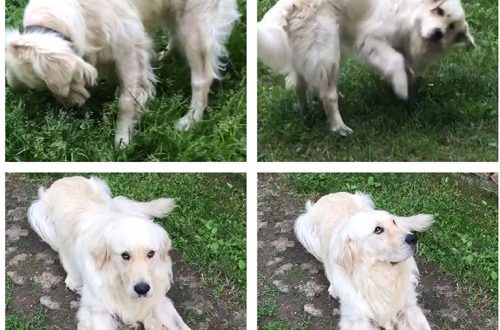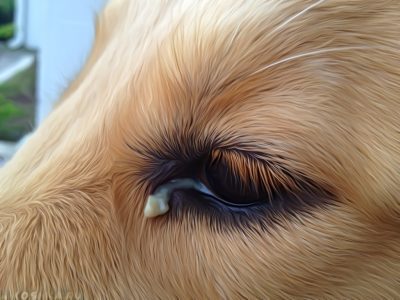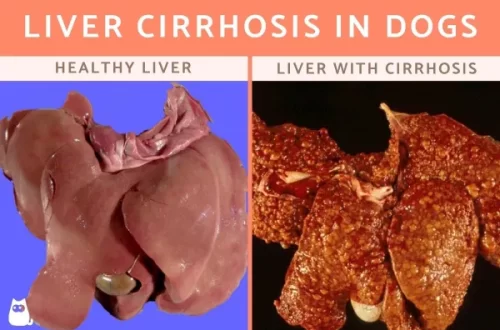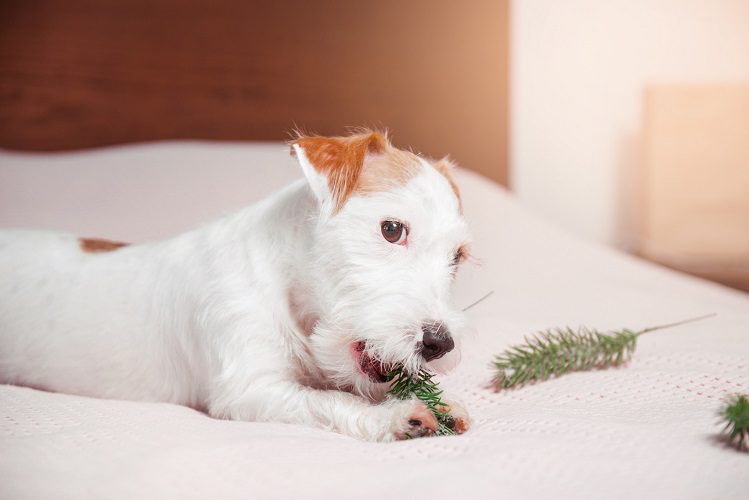
Foreign body in the digestive tract of a pet: recognize and neutralize
A foreign body in the stomach of a dog or cat can lead to significant health problems. During the New Year holidays, four-legged friends are especially vulnerable. Shiny decorations and fragrant delicacy wrappers are everywhere. If an inquisitive pet swallows something inedible at the height of the holidays, it will be difficult to quickly get an appointment with a veterinarian. Let’s talk about how to protect four-legged friends from such problems. And we will figure out how to understand in time that a disaster has happened to the pet, that he needs urgent medical help.
Contents
What can be a foreign object
We call a foreign body an indigestible object that has entered the digestive tract of a pet. Usually this is something inedible, but it can also be an overly large piece of food or an unchewed delicacy. An object that has entered the body gets stuck in one of the sections of the gastrointestinal tract, from the pharynx to the large intestine. And usually causes pain and discomfort to a four-legged friend, does not allow to eat normally and lead an active life.
The danger is that some swallowed items are relatively harmless, a cat can live for months with a hair tie in his stomach. Outwardly, the pet will be almost in order, there will be only temporary rare deterioration in well-being. But there is nothing good in the fact that the pet has a foreign object inside. Always keep in mind that the ward can unnoticed by you eat some trifle forgotten by you in a conspicuous place.
What foreign body in a cat or dog in the body can cause the greatest harm to a pet?
These are sharp objects like needles, pins. Metal objects (buttons, coins, paper clips). But batteries and magnets are especially dangerous. Batteries in contact with the mucosa create an electrical discharge. Gastric juice can destroy the battery shell. And its contents will lead to a chemical burn. As for magnets, in this case, the removal of a foreign body from the intestines of a cat or dog will be extremely difficult. Two swallowed pieces of the magnet stick together and do not go forward along the gastrointestinal tract.
New Year’s holidays are a potential threat for pets who love to taste everything.
Tinsel, shiny decorations attract the attention of pets. A variety of threads, rain, garlands are extremely dangerous, especially for cats and small kittens. These linear foreign objects can twist the intestines into an accordion. And if the cat has already begun to chew on something similar, it will almost certainly get stuck in the digestive tract. The very structure of the tongue in cats is such that the villi on it are hooks. The cat’s tongue is designed to catch and direct everything that enters the pet’s mouth.
The bustle and abundance of delicious-smelling food at home during the holidays can also be called a risk factor. While preparing a New Year’s dinner, a sausage wrapper accidentally ended up on the floor, and a cat or a dog is right there. Sniffed, licked, accidentally swallowed.

How to recognize the problem
A foreign body in a cat or dog in the gastrointestinal tract will certainly affect well-being. If your ward swallows something that his esophagus cannot handle, you will quickly notice negative changes in the behavior of the pet. A sharp change in well-being, swallowing movements, salivation may indicate that some foreign object is stuck between the esophagus and stomach. Possible vomiting, diarrhea, refusal of food, a slight increase in temperature.
The most disturbing symptoms are as follows. Vomiting, lack of bowel movements, fever by one to one and a half degrees, bloating. All of the above signs indicate that the pet needs to be urgently shown to the veterinarian.
We emphasize that not all signals of this kind need to be attributed to a foreign body. It may be something from the spectrum of gastroenterological problems. What exactly should not be done? You cannot self-medicate. No laxative! If the laxative increases intestinal motility, this further injures the internal organs of the victim. Before visiting the veterinarian, you can swaddle a cat or dog and use a flashlight to look into the throat. In rare cases, any fish bone stuck in the palate or throat can be carefully removed with tweezers. But where is the guarantee that the cause of the ailment is in this single bone? That is why it is important to contact a veterinarian as soon as possible so that the doctor can diagnose and prescribe treatment.
For help – to the vet
A veterinarian is interviewing the owners of a furry patient. It is very important to remember exactly at what point, under what circumstances, the pet became unwell. The veterinarian conducts an examination, measures body temperature, feels the abdomen, assesses the condition of the mucous membranes.
An x-ray is taken at the vet. But even in the picture, a foreign body in a dog or cat in the gastrointestinal tract can be poorly visible. For example, it is extremely difficult to see transparent cellophane in the picture. Then the doctor has to give the pet a drug to increase the contrast during x-ray examination and take a second picture. The doctor may additionally conduct an ultrasound.
Sometimes a foreign object is excreted from the body naturally. But even here you need an examination and the conclusion of a veterinarian. And also the implementation of all the recommendations of a specialist, because after such a shock for the body, it is necessary to return to the previous feeding scheme gradually. In some cases, it pushes the foreign body forward along the gastrointestinal tract with a probe.
It is often necessary to remove a foreign body from the gastrointestinal tract through surgical intervention. It is important that the owners follow the instructions of the veterinarian exactly and provide the pet with postoperative care.
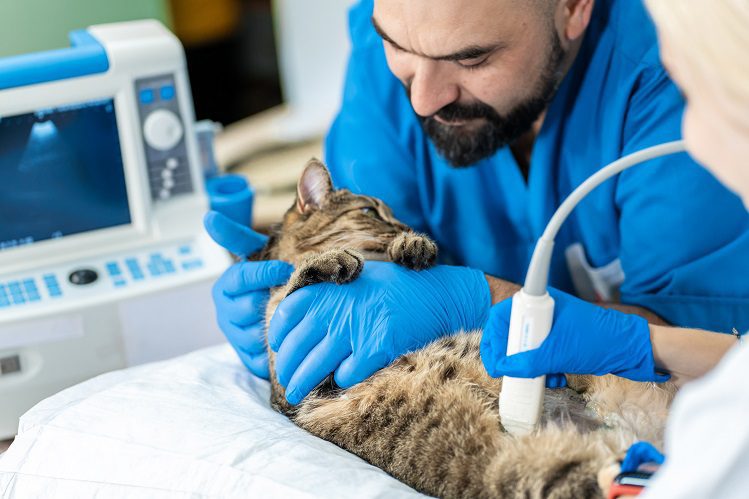
How to protect your pet from swallowing foreign bodies
We have already seen that a foreign body in the intestines of a dog or cat can cause many health problems. But all these troubles can be prevented if you follow the safety rules.
Throw away tattered, torn toys immediately. Especially if rope or rope elements are disheveled in them. Choose toys for your pet that are appropriate for their size and needs. It will be inconvenient for a large adult dog to play with a small ball, such a toy can accidentally slip into the throat.
Keep all medicines, household chemicals, household items, small toys as far away from your furry wards as possible. If you repair watches at home, repair appliances, do needlework, sewing, then always lock your office. Dogs, cats and other pets should not have access to the danger zone.
During the holidays, maximize the distance between pets and New Year’s decor. Place a fence around the Christmas tree, place the tree on a hill. Spray with a citrus-scented spray – cats definitely won’t like it. A smart decision would be to choose a minimalist decor. After all, the essence of the holiday is not in the number of garlands, but in a good mood and time spent with loved ones. Hide delicious-smelling meats from your four-legged friends. It is best to throw away all wrappers and packaging immediately after cooking.
On the street, wean the dog to pick up dubious finds from the ground. If you walk at night and let your dog off the leash, use a muzzle. This will give you the confidence to protect your pet.
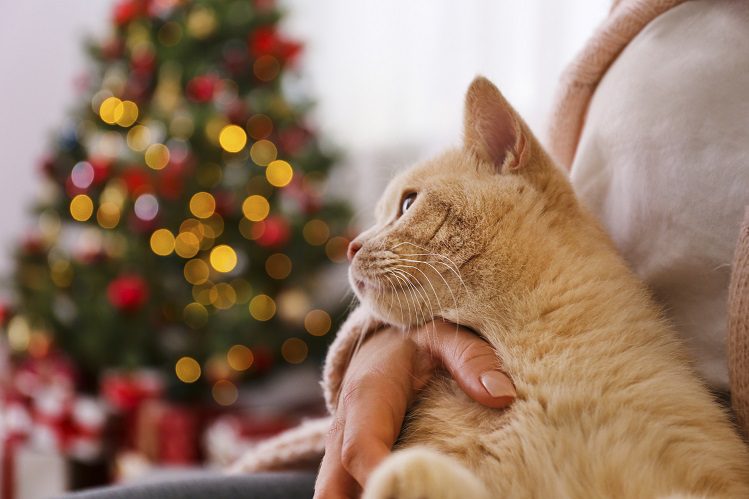
We urge you to follow the safety rules and take care of your four-legged friends. And don’t panic if something happens to your pet. The ability to quickly recognize the problem and take the necessary measures is the key to the well-being of your ward. We wish you and your pets health, prosperity and happy holidays!
The article was written with the support of the Valta Zoobusiness Academy. Expert: Lyudmila Vashchenko — veterinarian, happy owner of Maine Coons, Sphynx and German Spitz.




